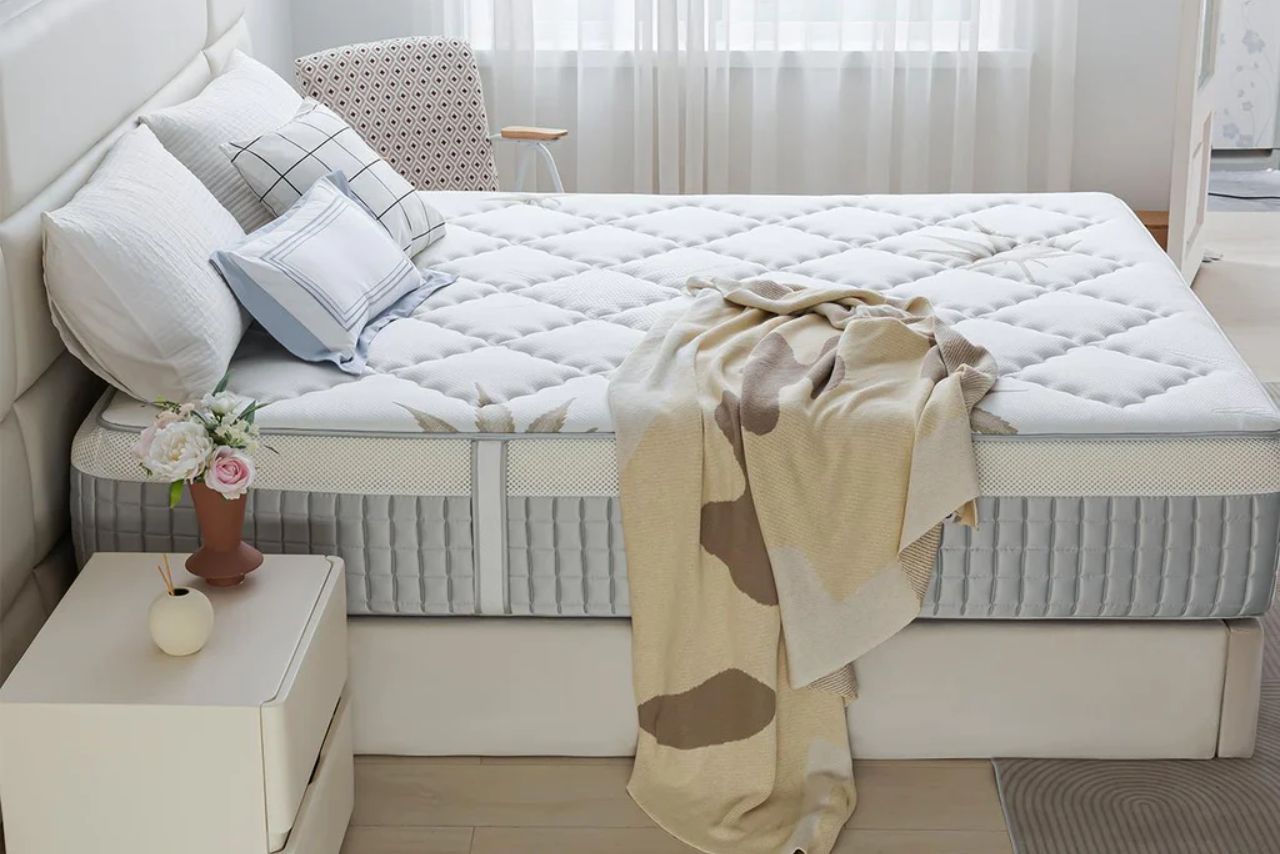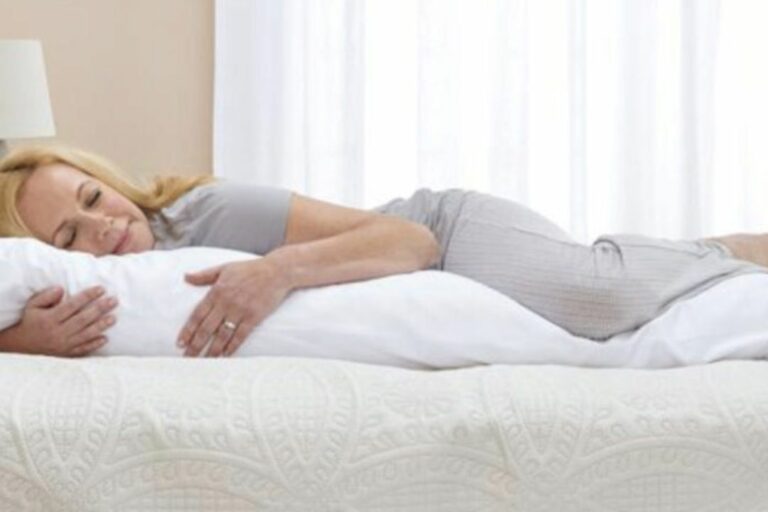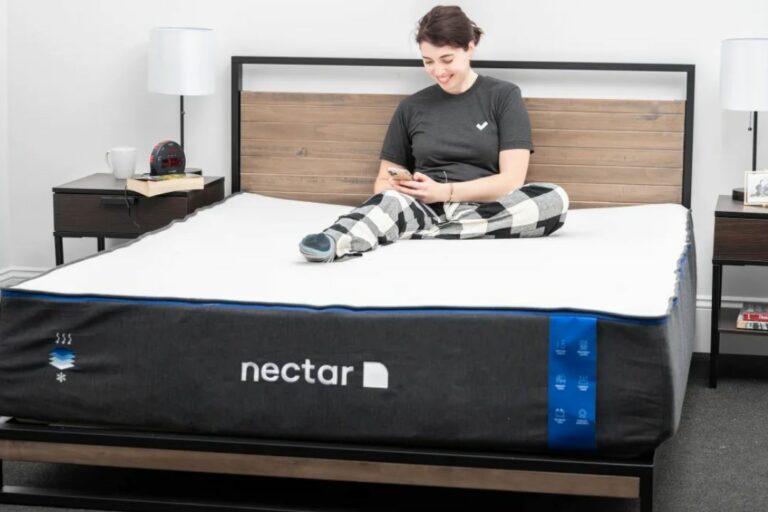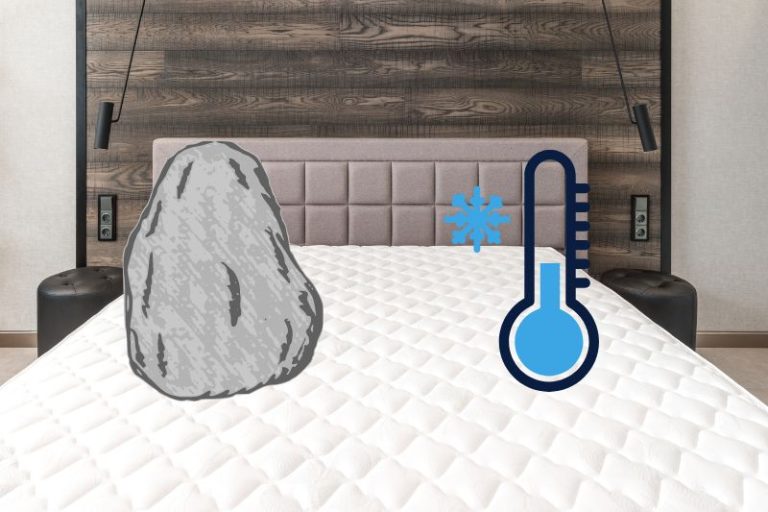Is It Illegal to Sell a Used Mattress? (A Step-by-Step Guide!)

Is It Illegal to Sell a Used Mattress?
In many places, selling used mattresses is legal, but regulations vary by region. Some areas have restrictions to ensure mattresses are clean and in good condition to prevent the spread of pests and diseases.
So, let’s delve into the legality of selling used mattresses and explore the factors that determine whether you can engage in this practice within your jurisdiction.
In general, laws regarding the sale of used mattresses aim to protect consumers from potential health risks associated with unsanitary or hazardous bedding.
Many jurisdictions require sellers to take specific precautions before putting a pre-owned mattress on the market.
These precautions often involve thorough cleaning and disinfection processes to ensure that any potential bedbugs, dust mites, or other allergens are eradicated.
It’s important to note that while selling a used mattress might be permissible in many places under certain circumstances, knowingly attempting to sell an unsafe or contaminated mattress can lead to serious consequences.
Therefore, before engaging in this type of transaction, familiarize yourself with local regulations governing such sales and make sure you adhere to them meticulously.
Keep reading our article for more detailed information about the legality of selling used mattresses worldwide and tips on how to navigate these regulations successfully!
Laws Regarding Selling Used Mattresses:
When it comes to selling used mattresses, there are certain laws and regulations that you need to be aware of.
These laws vary from state to state, so it’s important to familiarize yourself with the specific regulations in your area.
Here is a breakdown of some common legal considerations:
- State-Specific Regulations: Each state has its own set of rules regarding the sale of used mattresses. Some states have strict guidelines, while others may not have any specific regulations in place.
- Sanitation Requirements: Many states require that used mattresses be sanitized before they can be sold again. This typically involves cleaning and disinfecting the mattress to remove any potential allergens or bed bugs.
- Warranty Disclosure: Some states may require sellers to disclose whether or not a warranty exists for the used mattress being sold. This helps protect consumers by ensuring they are fully informed about their purchase.
- Labeling Requirements: Certain states may mandate that used mattresses display specific labels indicating that they are “used” or “reconditioned.” This helps prevent confusion among buyers who might mistake a secondhand mattress for a brand new one.
- Banned Materials: In some cases, certain materials commonly found in older mattresses (such as asbestos) are prohibited due to health hazards associated with them. It’s essential to ensure compliance with any bans on hazardous materials when selling used mattresses.
- Recall Compliance: Sellers must also be aware of any mattress recalls issued by manufacturers or government agencies and take appropriate action if necessary.
- Consumer Protection Laws: General consumer protection laws apply when selling used products, including mattresses. These laws prohibit deceptive practices such as false advertising or misrepresentations regarding the condition or history of the mattress being sold.
Remember: Always consult local authorities or legal experts for precise information regarding your location’s regulations on selling used mattresses.
Understanding Health and Safety Regulations:
When it comes to selling used mattresses, there are important health and safety regulations that you need to be aware of.
These regulations are in place to ensure the well-being of consumers and prevent the spread of diseases or potential hazards associated with second-hand bedding.
Here’s what you should know about health and safety regulations for selling used mattresses:
- Sanitization Requirements: Before a used mattress can be sold, it must undergo proper sanitization procedures. This involves thoroughly cleaning the mattress to remove any dirt, stains, or odors. Sanitization methods may vary depending on local regulations but commonly include steam cleaning, disinfection using appropriate solutions, or even professional services.
- Inspection Standards: Used mattresses must meet specific inspection standards before they can be sold legally. These standards typically involve checking for signs of wear and tear, structural integrity issues such as sagging or broken springs, bed bugs infestation, mold growth, and other potential hygiene concerns.
- Labeling Requirements: Many jurisdictions require sellers to provide specific labeling information on used mattresses. This information may include details about the product’s age (e.g., manufacturing date), previous ownership history if known (e.g., single-owner vs multi-owner), disclosure of any defects or damage that could affect its usage or pose risks to buyers’ health.
- Warranty Considerations: Selling used mattresses may come with limited warranty options due to their pre-owned nature; however, certain regions might have specific laws regarding warranties for these products. It’s crucial for sellers to understand their legal obligations in terms of warranties provided with used mattress sales.
- Local Laws and Restrictions: Health and safety regulations surrounding the sale of used mattresses can differ by jurisdiction – city ordinances or state laws might impose additional requirements beyond general guidelines mentioned above so it is essential for sellers to research local legislation thoroughly.
By understanding these health and safety regulations, sellers can ensure they comply with the law and prioritize consumer well-being.
It’s important to stay informed about the specific regulations in your area and take appropriate measures to maintain a safe and hygienic environment for buyers.
State-Specific Restrictions on Selling Used Mattresses:
When it comes to selling used mattresses, different states in the United States have their own specific regulations and restrictions.
It is important to be aware of these guidelines before engaging in any mattress resale activities.
Here are some state-specific restrictions you should know:
- California: In California, it is illegal to sell a used mattress unless it has been properly sanitized and labeled as such.
- Connecticut: Connecticut requires that all used mattresses for sale must be disinfected and labeled with the month and year of manufacture.
- Florida: In Florida, sellers must sanitize every used mattress they intend to sell or dispose of properly within 72 hours.
- New York: New York law prohibits the sale of second-hand bedding without proper sanitization and labeling.
- Pennsylvania: Pennsylvania mandates that all second-hand mattresses sold must undergo a thorough cleaning process prior to being offered for sale.
- Texas: Texas law stipulates that retailers selling used mattresses are required to sanitize them using an approved method before offering them for resale.
- Washington: Washington state prohibits the sale of used bedding without proper sanitation measures being taken beforehand.
- Wisconsin: Wisconsin imposes strict regulations on the reselling of used mattresses, requiring sellers to comply with sanitation standards set by the Department of Agriculture, Trade, and Consumer Protection (DATCP).
It’s important to note that these are just a few examples; many other states have similar regulations in place regarding the sale of used mattresses.
Therefore, if you’re planning on selling a pre-owned mattress or purchasing one from someone else, always check your state’s specific laws and guidelines regarding this matter.
What to Consider Before Buying or Selling a Used Mattress?
When it comes to buying or selling a used mattress, there are several factors you should consider.
Here are some important points to keep in mind:
- Health and Safety: The first and foremost consideration is the health and safety aspect. Mattresses can harbor bacteria, allergens, bed bugs, or even mold if not properly maintained. Make sure the mattress is clean and free from any potential health hazards.
- Quality of the Mattress: Assess the overall condition of the used mattress before making a purchase or listing it for sale. Check for signs of wear and tear such as sagging, stains, or odors that could affect its comfort level.
- Warranty Coverage: If you’re buying a used mattress from a reputable retailer who offers warranty coverage on their products, check if this coverage extends to second-hand purchases as well. This could provide peace of mind knowing that you have recourse if any issues arise after your purchase.
- Price Comparison: Research current prices for new mattresses with similar features to determine whether buying used is truly cost-effective in comparison. Keep in mind that while used mattresses may be cheaper upfront, they may not last as long as new ones.
- Seller’s Reputation: When purchasing from an individual seller rather than a retailer, it’s essential to assess their reputation and credibility beforehand by checking reviews or asking for references if possible.
- Local Laws and Regulations: Familiarize yourself with local laws regarding the sale of used mattresses in your area. Some locations have restrictions due to hygiene concerns or specific labeling requirements that must be followed.
Remember: transparency is key when selling a used mattress! Provide accurate information about its age, condition, usage history (if known), and any relevant certifications like being hypoallergenic or eco-friendly.
| Key Points |
|---|
| – Health & Safety |
| – Quality of the Mattress |
| – Warranty Coverage |
| – Price Comparison |
| – Seller’s Reputation |
| – Local Laws and Regulations |
By considering these factors, you can make an informed decision when buying or selling a used mattress that aligns with your needs, budget, and local regulations.
Tips for Properly Disposing of an Old Mattress:
When it comes to getting rid of your old mattress, you want to make sure you do it properly.
Improper disposal can harm the environment and even be illegal in some areas.
Follow these tips to ensure you dispose of your old mattress responsibly:
- Check local regulations: Before disposing of your old mattress, check with your local authorities or waste management department for any specific guidelines or restrictions. Some areas have strict rules regarding how mattresses should be disposed.
- Donate or sell if possible: If your mattress is still in good condition, consider donating it to a charitable organization or selling it online. Many people are in need of affordable mattresses, and this way you can give yours a second life.
- Contact recycling centers: Look for recycling centers that accept mattresses in your area. These facilities will disassemble the mattress and recycle its components like metal springs, foam, and fabric separately.
- Arrange curbside pickup: In some cities, waste management companies offer curbside pickup services specifically for bulky items like mattresses. Contact them to inquire about their policies and schedule a pickup if available.
- Use professional hauling services: If none of the above options work for you, consider hiring professional hauling services that specialize in proper mattress disposal. They will take care of all the heavy lifting and ensure that your mattress gets disposed of correctly.
- Consider repurposing ideas: Get creative! Your old mattress can find new uses around your home with a little imagination – turn it into a pet bed or use the springs as garden trellises!
Remember: It’s important not to simply dump your old mattress on the side of the road or illegally discard it without considering environmental impact laws applicable where you live.
| Tip | Description |
|---|---|
| 1 | Check local regulations |
| 2 | Donate or sell if possible |
| 3 | Contact recycling centers |
| 4 | Arrange curbside pickup |
| 5 | Use professional hauling services |
| 6 | Consider repurposing ideas |
That’s it! Now you have the necessary tips to properly dispose of your old mattress.
By following these guidelines, you can ensure that your mattress is disposed responsibly and minimize any negative impact on the environment.
Alternatives to Selling a Used Mattress:
If you are unable to sell your used mattress due to legal restrictions or difficulties in finding buyers, there are several alternatives you can consider:
- Donate it: Instead of selling your used mattress, you can donate it to charities or organizations that accept gently used mattresses. Many shelters, non-profit organizations, and religious institutions may be interested in receiving mattresses for those in need.
- Recycle it: Recycling is an eco-friendly option for disposing of an old mattress. Look for local recycling centers or waste management facilities that specialize in recycling mattresses. They will dismantle the mattress and recycle its components such as metal springs, foam padding, and wood frames.
- Repurpose it: If your creativity knows no bounds, repurposing your old mattress could be a fun project! You can transform the materials into various DIY projects like pet beds, outdoor cushions, or even artwork frames.
- Use local pickup services: Some cities offer free bulky item pickup services where they collect large household items including old mattresses directly from your home. Check with your municipality to see if this service is available near you.
- Trade-in programs: Certain retailers have trade-in programs where they allow customers to exchange their old mattress for a discount on a new one. This way, not only do you get rid of the used mattress responsibly but also save some money on a replacement.
Remember that before choosing any alternative disposal method mentioned above (except donation), ensure compliance with local laws and regulations regarding waste management and disposal methods.
By exploring these alternatives instead of trying to sell a used mattress out rightly when faced with legal obstacles or lack of demand from buyers, you can find environmentally friendly solutions while also helping others in need.
Resources for Donating or Recycling Old Mattresses:
If you have an old mattress that you no longer need, there are several options available for donating or recycling it.
Here are some resources to help you responsibly dispose of your used mattress:
- Local Charities: Consider contacting local charities such as homeless shelters, women’s shelters, or organizations that support low-income families. Many of these organizations accept donated mattresses in good condition to provide a comfortable sleeping surface for those in need.
- Thrift Stores: Some thrift stores may accept gently used mattresses and resell them at affordable prices. Contact your local thrift stores to inquire about their donation policies and whether they accept mattresses.
- Mattress Recycling Facilities: Look for specialized mattress recycling facilities in your area. These facilities disassemble old mattresses and recycle the components, reducing waste going into landfills.
- Manufacturer Take-Back Programs: Check if the manufacturer of your mattress offers a take-back program for their products. Some companies have initiatives in place where they can pick up your old mattress when delivering a new one.
- Municipal Waste Management Services: Inquire with your local municipal waste management services about whether they offer specific programs or guidelines for disposing of mattresses properly.
Remember to always check the condition requirements before donating a used mattress most places only accept clean and undamaged items due to health and safety concerns.
By taking advantage of these resources, you can ensure that your old mattress finds a new home or is recycled appropriately instead of ending up in a landfill unnecessarily.
Conclusion: Is It Illegal to Sell a Used Mattress?
In conclusion, selling a used mattress is generally legal in most states in the United States.
However, it is important to be aware of certain regulations and guidelines that vary from state to state.
While some states have stricter laws regarding the sale of used mattresses, others have more lenient regulations or no specific laws at all.
Before putting up a used mattress for sale, it is crucial to check your local laws and ensure compliance with any requirements set by your state’s health department or consumer protection agency.
This may include measures such as proper sanitation and labeling of the mattress.
Overall, while it is not illegal to sell a used mattress in most cases, it is advisable to take necessary precautions and follow any applicable rules and regulations to ensure both buyer satisfaction and adherence to legal standards.
By doing so, you can confidently navigate the process of selling a used mattress while staying within the boundaries of the law.






